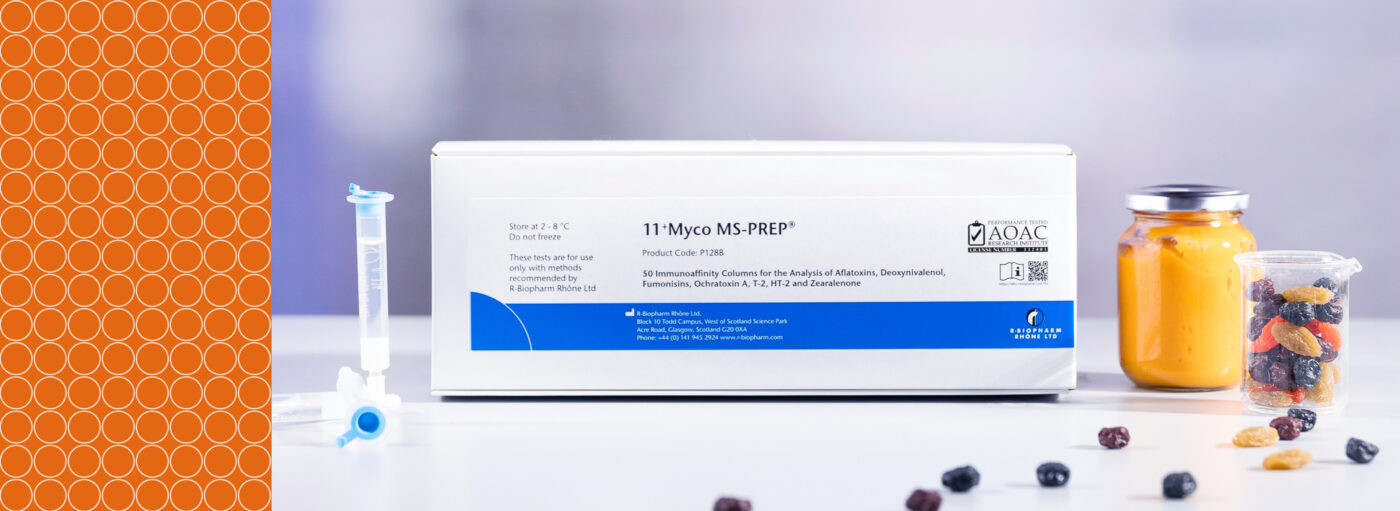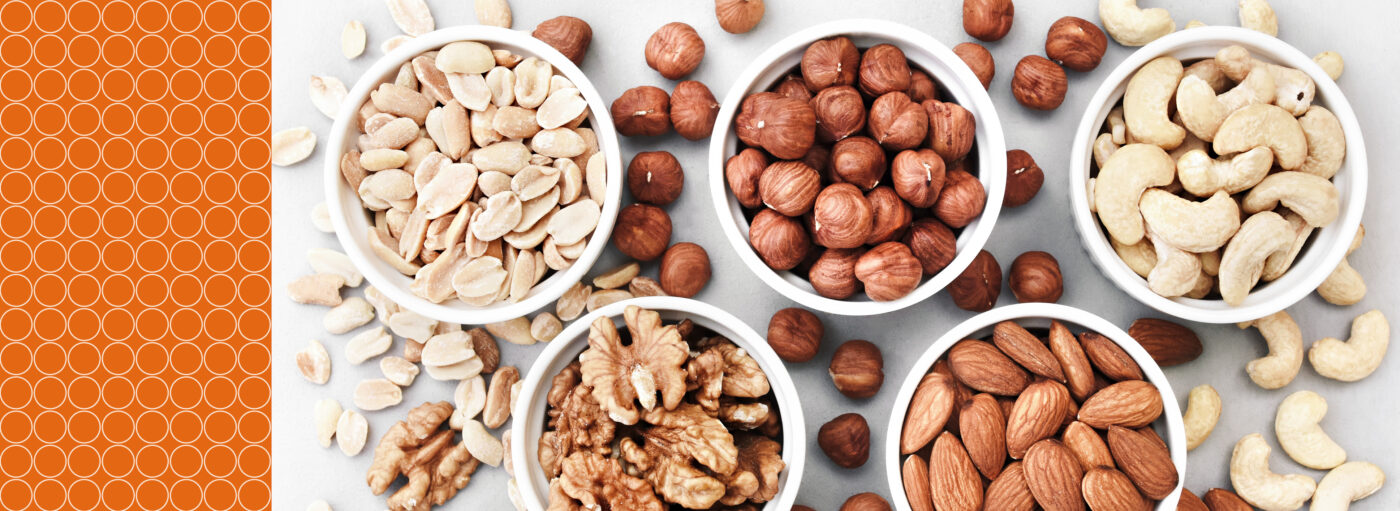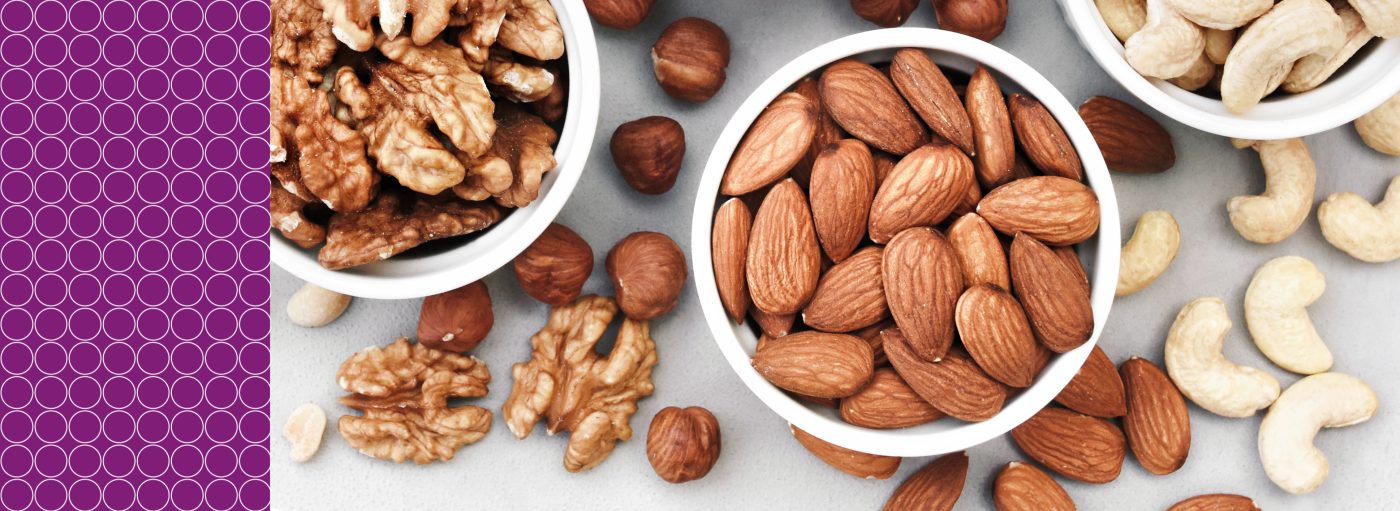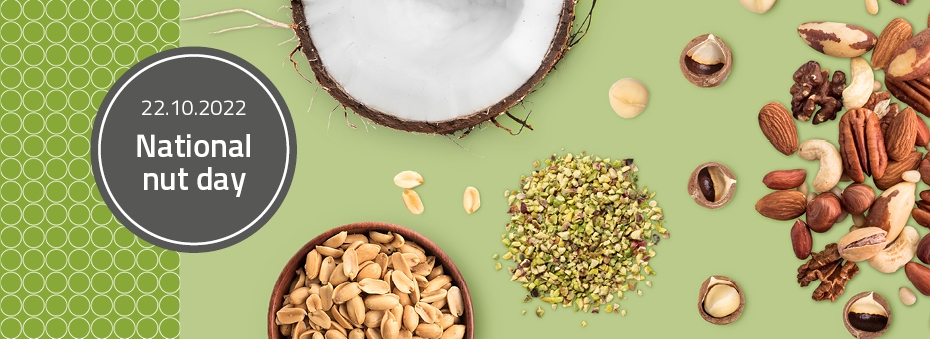
Fruits, spices and nuts
Ensure safe and high quality goods
- Home
- /
- Industries
- /
- Fruits, spices and nuts
Fruits, spices and nuts
Foods such as fruits, spices and nuts must undergo testing in order to obtain safe and high quality products.
Fruits, spices and nuts are widely marketed products. The market is growing, and more and more (often exotic) products find their way to the consumer. R-Biopharm test kits can be applied throughout the whole production chain: from raw materials to final products, from the inspection of incoming goods to hygiene monitoring and finally to product analysis for correct labeling. Our large portfolio of different test formats can be used to analyze even complex matrices such as:
- dried fruits and vegetables (e.g. sultanas, raisins, figs, apricots, plums, dates, peaches, apples, berries)
- spices, herbs and spice mixtures (e.g. chili powder, nutmeg, paprika powder, black pepper, garlic powder, ginger, curry powder, turmeric or licorice)
- nuts and nut products (e.g. peanut, almond, brazil nut, hazelnut, cashew, macadamia, pecan nut)
- and other foodstuffs.
Mycotoxins
Mycotoxins are a major cause of recalls of nuts, dried fruits and spices. Especially two mycotoxins are typically present: Aflatoxin and Ochratoxin A. Due to their high prevalence and toxicity, regulatory maximum levels for mycotoxin content in food are in place in many countries. Reliable screening methods are essential for manufacturers in order to comply with regulations and to ensure toxicologically safe products.
Allergens
Even small amounts of allergens may be dangerous for allergic persons – a single peanut in a bag of almonds may be fatal. Though allergenic ingredients must be labeled in most countries, unintended contamination during storage and production due to carryover is very common. That is why manufacturers should test incoming raw material as well as their final products to ensure correct labeling and to avoid product recalls.
Hygiene monitoring
The use of fruits and vegetables of poor quality (e.g. a high percentage of rotten fruit), inadequate hygienic conditions during processing as well as technical problems regarding thermal stabilization and aseptic packaging are factors which favor microbial growth. Though nuts have traditionally been considered a microbiologically safe product, recalls of nut products due to Salmonella are not unusual. Since microorganisms may cause foodborne diseases, the monitoring of pathogens and spoilage organisms throughout the whole production chain is crucial to ensure consumer protection and product stability.
Sugars, acids and other constituents
The quality of fruits and vegetables can be measured directly by sensory methods or indirectly (and more accurately) by chemical analysis. Enzymes offer sensitive and specific methods of quantification for many substances present in fruit and vegetable products. Relevant indicators for the product quality of fruits and vegetables include citric acid, lactic acid, malic acid, acetic acid, formic acid, D-isocitric acid, L-glutamic acid, D-glucose, D-fructose, sucrose, sulfite, SO2 and ethanol.
Product portfolio
| Product | Description | No. of tests/amount | Art. No. |
|---|---|---|---|
| RIDASCREEN®EASY Hazelnut |
RIDASCREEN®EASY Hazelnut (Art. No. RAE6401) is a sandwich enzyme immunoassay for the quantitative analysis of contaminations by hazelnut protein in foods. Hygiene samples can be investigated according to an application note, too. Read more |
Microtiter plate with 96 wells (12 strips with 8 removable wells each) |
RAE6401 |
| SureFood® ALLERGEN 4plex Almond/Pistachio/Cashew+IAC |
The SureFood® ALLERGEN 4plex Almond/Pistachio/Cashew+IAC is a multiplex real-time PCR for the direct, qualitative detection and differentiation of specific almond (Prunus dulcis), pistachio (Pistacia vera) and cashew (Anacardium occidentale) DNA … Read more |
100 reactions | S3406 |
| SureFood® ALLERGEN 4plex EU NUTS |
The SureFood® ALLERGEN 4plex EU NUTS is a multiplex real-time PCR for the direct, qualitative detection and differentiation of almond (Prunus dulcis), cashew (Anacardium occidentale), pistachio (Pistacia vera), peanut (Arachis hypogaea), hazelnut … Read more |
100 reactions | S3404 |





